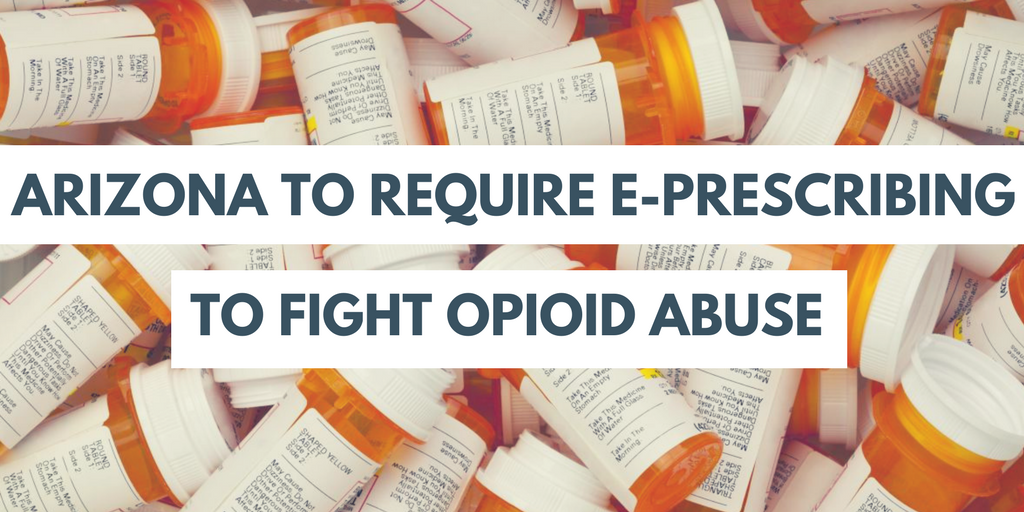

----- Blog Index / Arizona-to-Require-E-Prescribing-to-Fight-Opioid-Abuse [MDToolbox Staff] [2018-01-31]

Last week, Arizona Governor Doug Ducey called a special legislative session to pass the Arizona Opioid Epidemic Act1. In record speed, the Arizona Legislature voted unanimously to approve it and Ducey signed it into law on Friday.
The act is aimed at combating the opioid epidemic in Arizona, where in just the last 6 months there have been more than 800 opioid-related deaths. The focus of the act is to reduce opioid misuse, promote safe prescribing and dispensing, and improve access to treatment.
As stated in the Governor’s news release outlining the act, the policy includes:
The e-Prescribing requirement will begin January 1, 2019 and mandates schedule II controlled substances must be sent electronically. There is some concern that those in rural areas do not have the necessary technology for e-Prescribing. Therefore, the act gives those providers additional time and outlines that e-Prescribing will not be mandated until July 1, 2019 for counties with less than 150,000. It also allows for the Board of Pharmacy to grant waivers to prescribers with a lack of broadband Internet access or other hardships.
At MDToolbox, we urge providers not to wait until the mandate and to e-Prescribe all prescriptions. In addition to preventing forged prescriptions and helping combat opioid abuse, e-Prescribing provides many other benefits for providers and patients. Contact us to get started with a free trial today.
1. Arizona Opioid Epidemic Act Policy Primer https://azgovernor.gov/sites/default/files/related-docs/arizona_opioid_epidemic_act_policy_primer.pdf